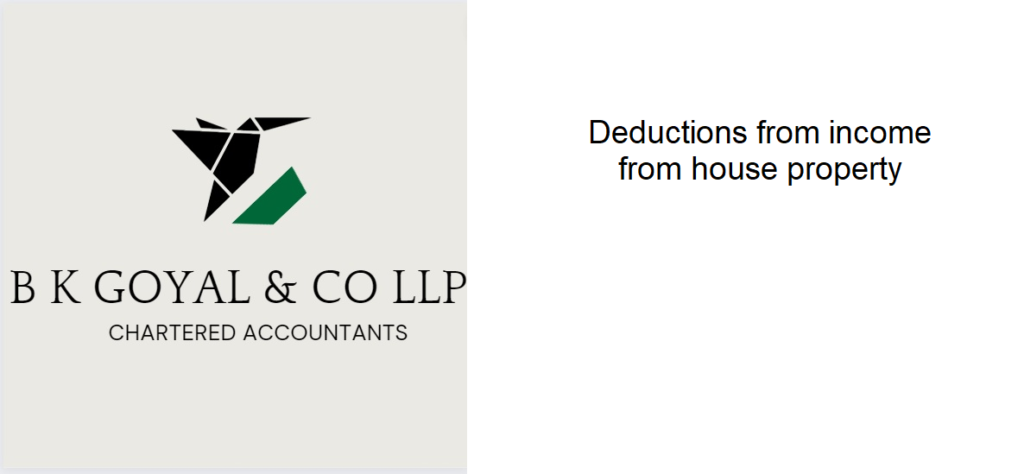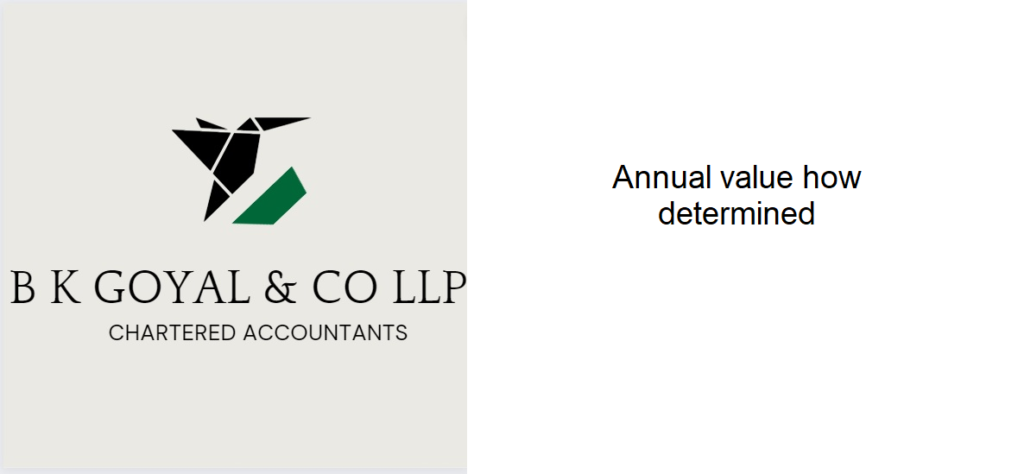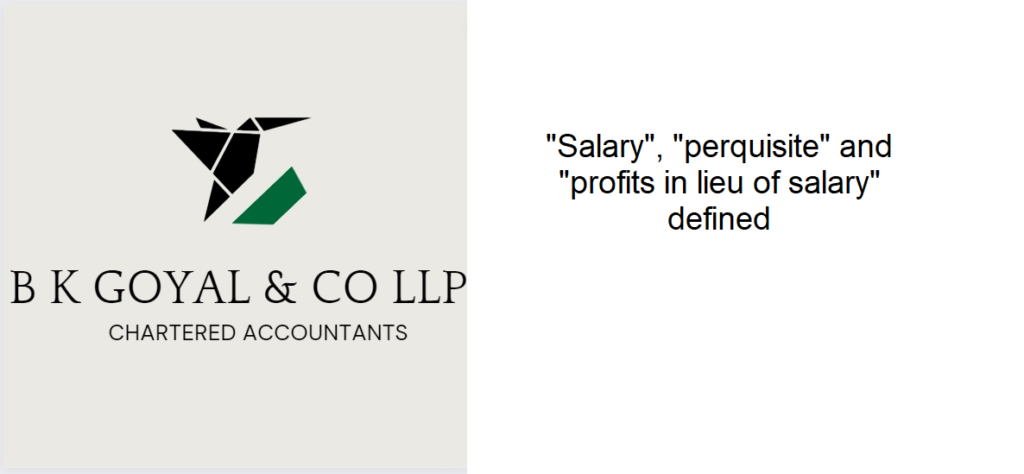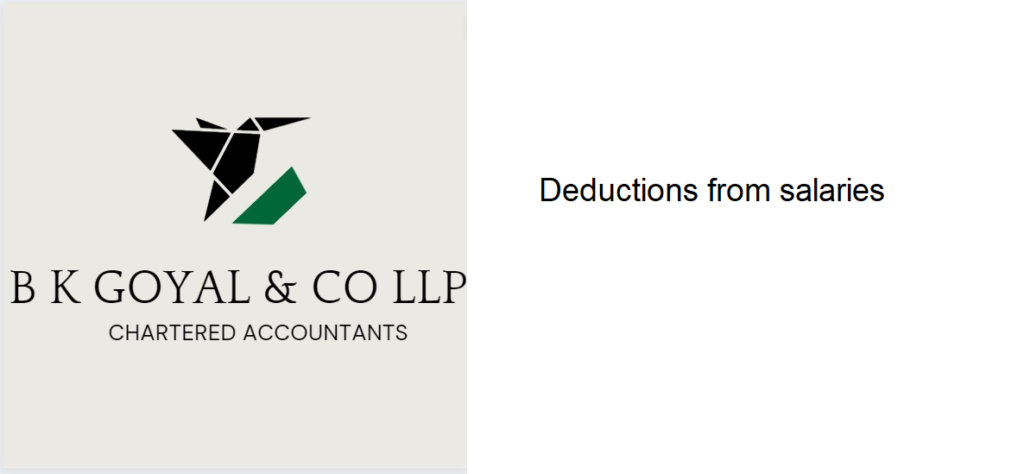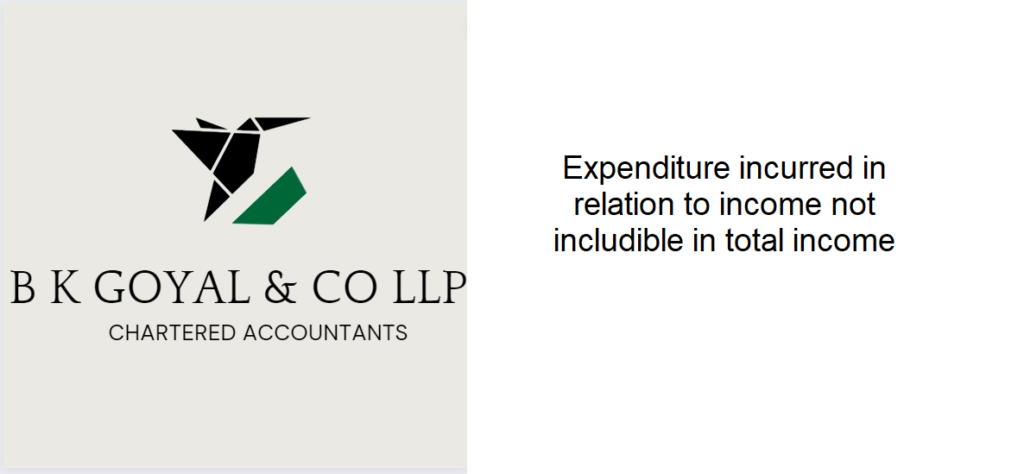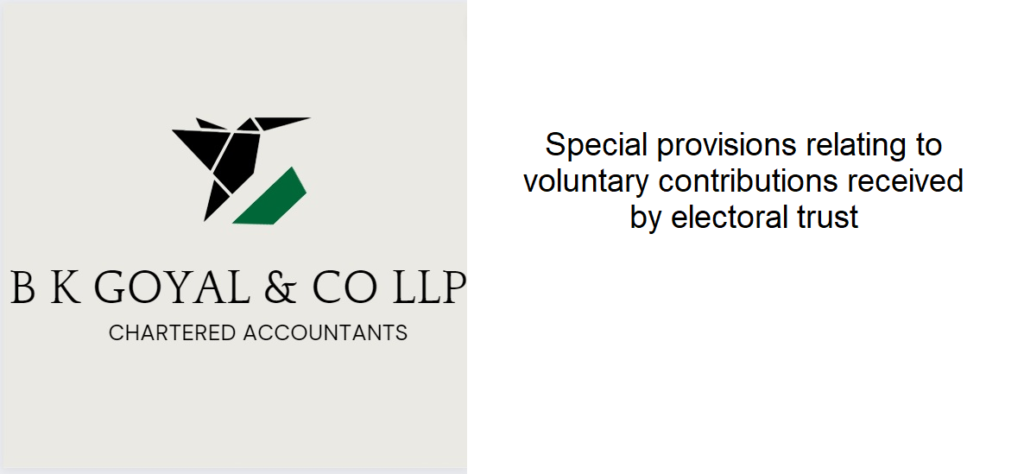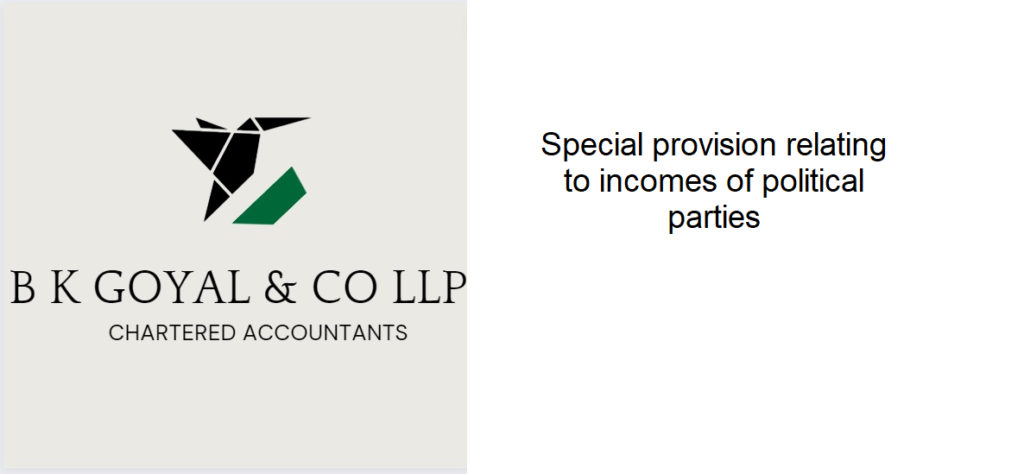Deductions from income from house property
When you earn income from a property that you have rented out or that is deemed to be rented out, it is subject to taxation under the “Income from House Property” category according to the Income Tax Act, 1961. However, there are certain deductions that can be claimed to calculate the taxable income from the property. One such deduction is the standard deduction, which is 30% of the net annual value. This value is calculated by subtracting the municipal taxes paid during the year from the gross annual value. It is important to note that this deduction can be claimed regardless of the actual expenses incurred on the property. Another deduction that can be claimed is for the municipal taxes paid during the year. This deduction can be claimed by subtracting the amount paid in municipal taxes from the gross annual value of the property. However, this deduction can only be claimed if the municipal taxes were paid during the year. The interest paid on a housing loan taken to purchase, construct, or renovate the property can also be claimed as a deduction from the income from house property. The maximum deduction allowed for a self-occupied property is Rs. 2,00,000, while for a rented out property, the entire interest paid can be claimed as a deduction. The cost incurred on repairs and maintenance during the year can also be claimed as a deduction from the net annual value of the property. However, this deduction is only available if the repairs and maintenance are revenue in nature, rather than capital in nature. In cases where the property is jointly owned, each co-owner can claim a deduction for their share of the property. The share of the property is determined by the ownership agreement between the co-owners. It is crucial to remember that the deductions allowed from income from house property are subject to certain conditions and restrictions. For instance, the deduction for interest on a home loan is only applicable if the construction of the property is completed within 5 years from the end of the financial year in which the loan was taken. In summary, claiming deductions from income from house property can help reduce your tax liability. However, it is important to ensure that the deductions claimed are in compliance with the provisions of the Income Tax Act, 1961. section 24 of Income Tax Act, 1961 Income chargeable under the head “Income from house property” shall be computed after making the following deductions, namely:— (a) a sum equal to thirty per cent of the annual value; (b) where the property has been acquired, constructed, repaired, renewed or reconstructed with borrowed capital, the amount of any interest payable on such capital: Provided that in respect of property referred to in sub-section (2) of section 23, the amount of deduction or, as the case may be, the aggregate of the amount of deduction shall not exceed thirty thousand rupees : Provided further that where the property referred to in the first proviso is acquired or constructed with capital borrowed on or after the 1st day of April, 1999 and such acquisition or construction is completed within five years from the end of the financial year in which capital was borrowed, the amount of deduction or, as the case may be, the aggregate of the amounts of deduction under this clause shall not exceed two lakh rupees. Explanation.—Where the property has been acquired or constructed with borrowed capital, the interest, if any, payable on such capital borrowed for the period prior to the previous year in which the property has been acquired or constructed, as reduced by any part thereof allowed as deduction under any other provision of this Act, shall be deducted under this clause in equal instalments for the said previous year and for each of the four immediately succeeding previous years: Provided also that no deduction shall be made under the second proviso unless the assessee furnishes a certificate, from the person to whom any interest is payable on the capital borrowed, specifying the amount of interest payable by the assessee for the purpose of such acquisition or construction of the property, or, conversion of the whole or any part of the capital borrowed which remains to be repaid as a new loan. Explanation.—For the purposes of this proviso, the expression “new loan” means the whole or any part of a loan taken by the assessee subsequent to the capital borrowed, for the purpose of repayment of such capital: Provided also that the aggregate of the amounts of deduction under the first and second provisos shall not exceed two lakh rupees. Services of B K Goyal & Co LLP Income Tax Return Filing | Income Tax Appeal | Income Tax Notice | GST Registration | GST Return Filing | FSSAI Registration | Company Registration | Company Audit | Company Annual Compliance | Income Tax Audit | Nidhi Company Registration| LLP Registration | Accounting in India | NGO Registration | NGO Audit | ESG | BRSR | Private Security Agency | Udyam Registration | Trademark Registration | Copyright Registration | Patent Registration | Import Export Code | Forensic Accounting and Fraud Detection | Section 8 Company | Foreign Company | 80G and 12A Certificate | FCRA Registration |DGGI Cases | Scrutiny Cases | Income Escapement Cases | Search & Seizure | CIT Appeal | ITAT Appeal | Auditors | Internal Audit | Financial Audit | Process Audit | IEC Code | CA Certification | Income Tax Penalty Notice u/s 271(1)(c) | Income Tax Notice u/s 142(1) | Income Tax Notice u/s 144 |Income Tax Notice u/s 148 | Income Tax Demand Notice
Deductions from income from house property Read More »
